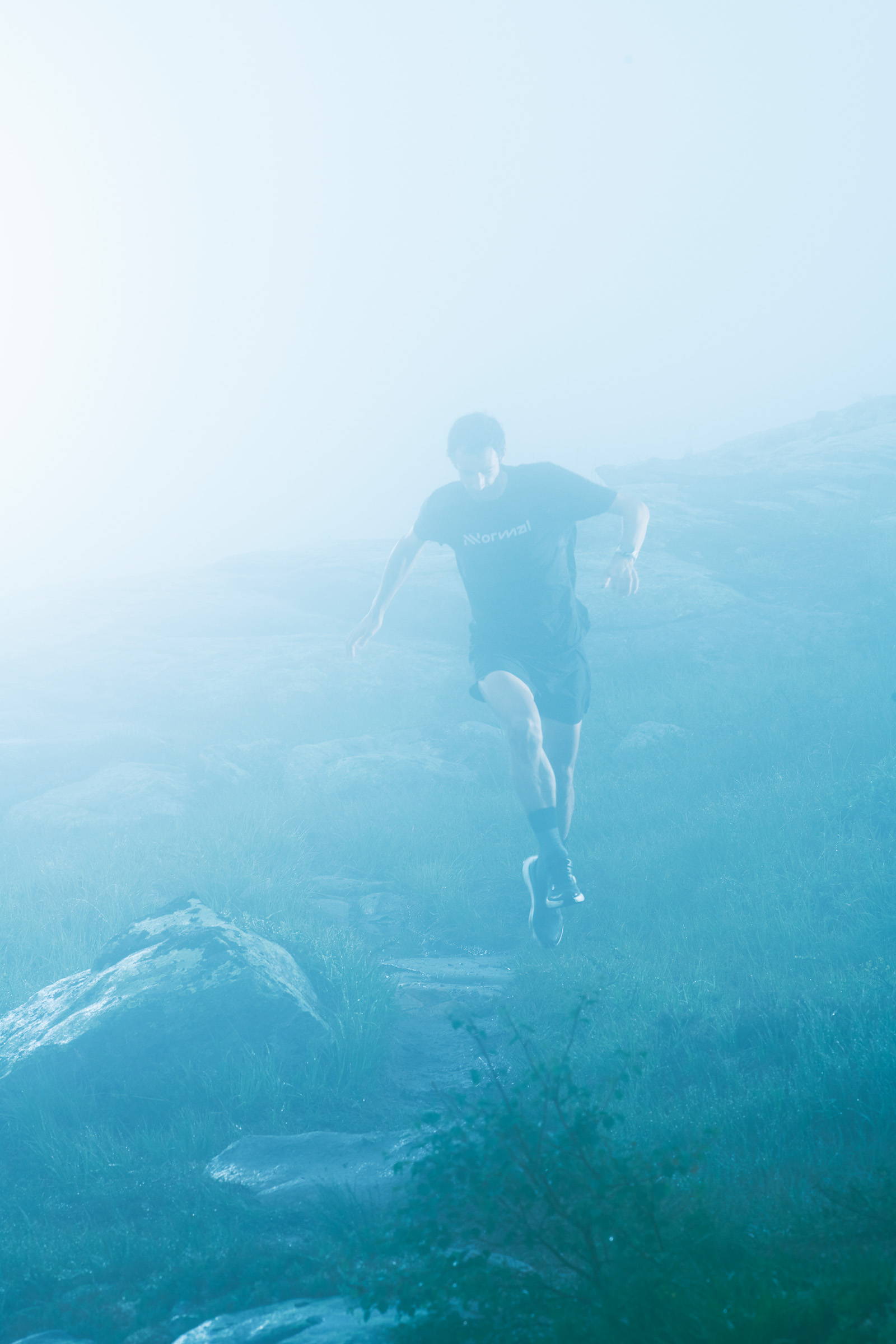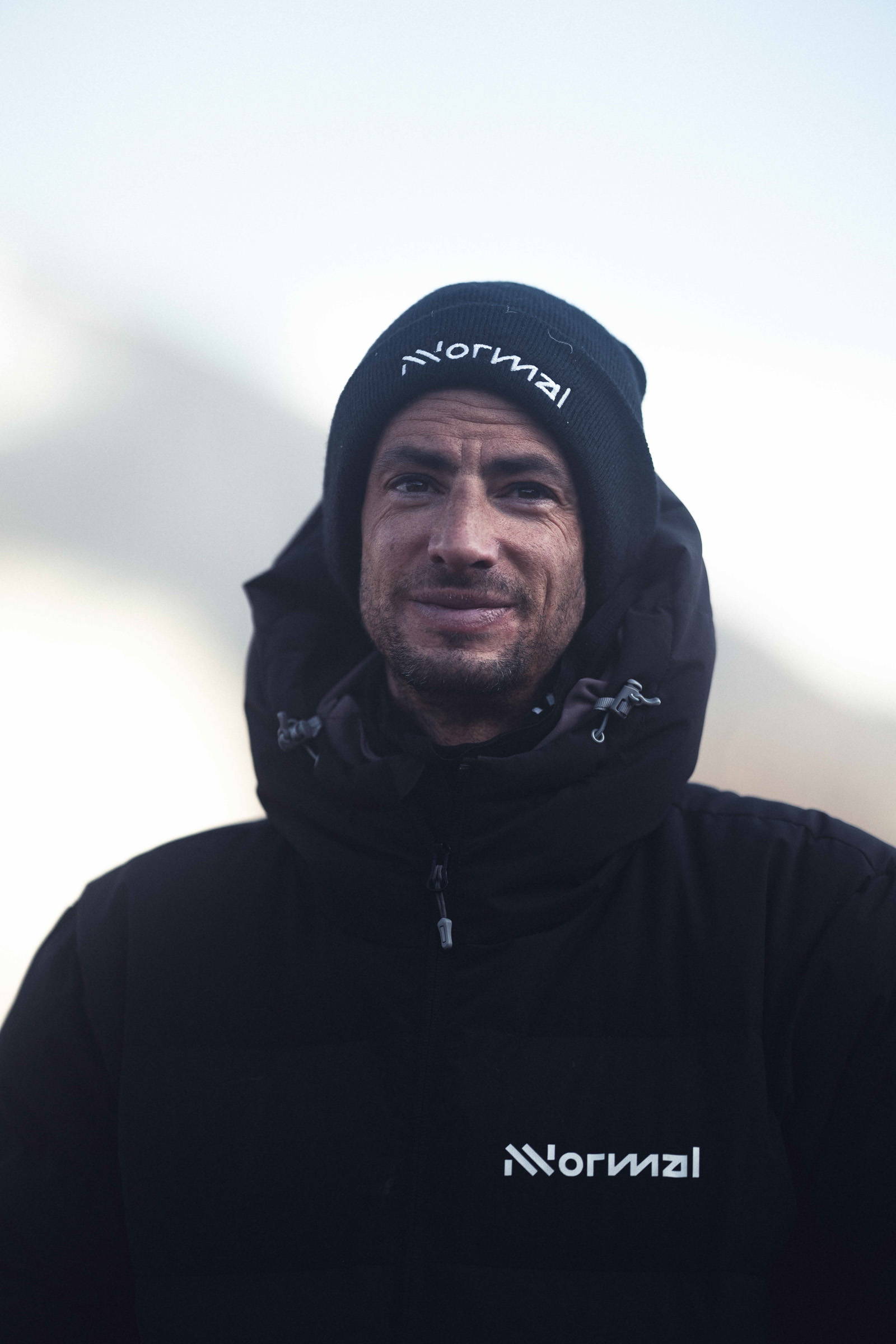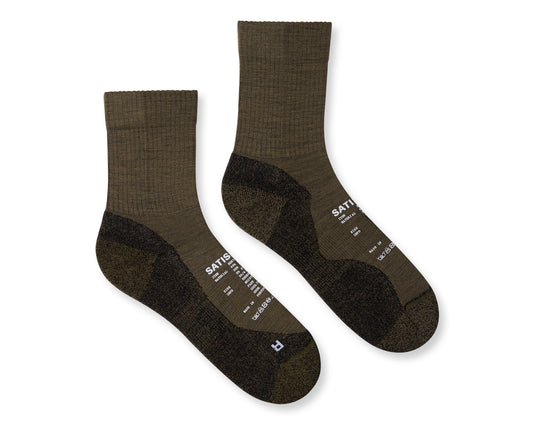
This interview with Kílian was conducted via Q&A for two reasons. Firstly, it allowed him to take his time formulating answers, which turned out great because those answers are thoughtful and wise (especially the one he gave for that last question we borrowed from James Lipton), and we think you, the reader, will get more out of this than you perhaps would have otherwise. The second reason we chose to do a Q&A is this: Kílian is a really busy dude. Besides his intense (and that's an understatement) training schedule, he's a dedicated husband and father, not to mention the founder and overseer of his own mountain conservation group, The Kílian Jornet Foundation. And then, of course, there's the company he launched with Camper—the running shoe and apparel brand NNormal. That's a lot for one guy, even if he does have the aerobic capacity of two guys.
We sent some questions to Kílian at his home in Norway. Here's what he sent back.

'I remember when going to a city, the beach, or when I saw a television for the first time at five years old. I was going around trying to find where the people were inside that box.'
What's your earliest memory of mountains?
I don't have a memory of the first time I was in the mountains because I was born in a mountain hut in the Pyrenees, so for me, it was the natural environment. In the opposite, I remember when going to a city, the beach, or when I saw a television for the first time at five years old. I was going around trying to find where the people were inside that box. The day I climbed Aneto at the age of five, the only thing I remember was that back in the village, I took off the small wheels on the bike… To be in the mountains was just the normal thing.
Has fatherhood made you more risk-averse?
I've always been pretty systematic on risk assessment, and I'm someone who is pretty afraid of risks. I wouldn't say my relationship with risk-taking on the mountains has changed because of fatherhood; it's changed in its form through my knowledge of natural and environmental risks when doing an activity and the knowledge of my capacities. But my relationship to some other risks has changed enormously since our first kid was born. In other facets of life, I try not to risk it. I did a lot of long drives without any sleep in the past, now I wouldn't consider it. And I try to minimize health risks in how I eat and exposure to pollution, for example.
How do you balance your work life/training and being a husband and father?
Mostly, it changed the day-to-day logistics. Now that both our daughters go to kindergarten, it is easier; we can train Monday to Friday, pretty much, and then I sometimes do a session in the evening when they're sleeping. And on the weekends, we prioritize family time; normally, we do something short to train and do activities all together.
Your athletic achievements are mind-boggling. What drives you?
The main thing that has driven me has been what in Catalan we call 'Fer muntanya,' which translates as 'Do mountains' and has a slightly different meaning than being in the mountains or doing activities in the mountains. For me, it's to do things in this environment and feel part of it. Secondly, my motivation has come also from other things that have evolved or changed. At first, I wanted to improve as a young athlete, then I set some goals of winning some races or doing some projects, then exploring what could be possible, my physiological, psychological, or technical limits.

'When I was young, I was always super nervous, then with the experience of doing races every weekend, I realized it is just another day, and it became what it is: a day where I try to give my best, nothing more.'
What's your favorite race and why?
I always say and believe that my favorite one is the one I'll do tomorrow. The next thing is the one that excites me and drives me. But if I need to choose some trail running races, I probably would say Hardrock 100 in the long distance—for the landscapes and the community feeling around the race—and Zegama and Sierre Zinal among the short ones—for the competition and the ambiance, and the organizations who become sort of second families.
Do you have any tips on getting a good night's sleep before a race?
I would say, from experience, that you should get used to racing. When I was young, I was always super nervous, then with the experience of doing races every weekend, I realized it is just another day, and it became what it is: a day where I try to give my best, nothing more. And anyway, if you haven't trained well, there's nothing to do, so why worry? And if you have trained well, there is nothing to worry about.
What's going through your mind when you know in a few minutes you'll be starting a race that might last for 30 or 40 hours? Is there a voice in your head saying, 'Kilian, let's just go home and binge-watch The Bear'?
The start of a long race is pretty relaxed because you have plenty of time to figure it out, see strategy, adapt to conditions, rivals, etc.… I think when you have experience doing ultras, and you know what to expect, it's a pretty nice feeling at the start. It's much more stressful at the start of a short race where precision in every decision is much more key for the outcome.
How do you combat negative thinking when a race gets difficult?
Well, by expecting it! During a race, there will be many moments of doubt and of wanting to stop or abandon the race. And sometimes it can be useful to lie to yourself and say, 'I go to the next aid station and stop there…' knowing that you will not. Setting small goals inside the race and remembering that I'm doing it because I chose it, because it gives me pleasure, even if I can't feel it at that precise moment.
What do you like to do during recovery periods?
Basically, I do the same but without any structured plan. So, I go to the mountains, mostly climbing, scrambling, running, skiing… but doing it for as long and slow as I feel like it, without any training purpose, but just because it is where I feel I can resource myself. Then, at home, where no training is not much of a recovery, we're mostly playing with the kids, doing work in the house, or working on different things (NNormal, the foundation, and learning sports science mostly).

'I'm happy to share info and knowledge with other athletes to make it better, the same way I got knowledge from others in the past.'
What's the longest you've gone without running and why?
Without running, probably every winter for many years. Now, I do some running on some days in winter, but for many years, my winters from November to April were only skiing. If you meant without exercising or being in the mountains, probably during my injuries: the patella in 2006 and the fibula in 2018. I went about a whole month or so without any real exercise. If I'm not injured, I don't like to be far from the mountains. One time, we did Diagonale des Fous with Emelie [Forsberg, Kílian's wife], and we planned to stay one week after that to 'enjoy' a relaxing time on the beach. The second day, we looked at each other and changed the flight home to start training on the skis.
What is the most important lesson that running has taught you?
To be patient. That it isn't about the highs and the noise you can make, but about the silent work over years.
When someone breaks your record, like in the case of Kilimanjaro and Karl Egloff, are you tempted to try and win it back?
No, I have experienced a thing there, and I'm happy to share info and knowledge with other athletes to make it better, the same way I got knowledge from others in the past. For me, it's different with races where the competition with others is exciting and makes the race exciting. But for projects, I think it's nicer to do different things than to go back and try to do the same thing a bit better again. That is not true in the home projects, where there's not real discovery and where it is more like a test to see your improvement; but in projects that demand some traveling, and where the discovery part is essential, I prefer to not repeat, and instead try something new.
Do you ever think about a race you've won or a record you've set and go, 'Holy shit. I can't believe I did that!'?
When I won my first skimo race in the absolute category being a junior, in Grindelwald in 2007, I couldn't believe it was real. Since then, the first time winning a race is very exciting, but I wouldn't say it's a surprise, since I've worked hard for it and believed I could do it, because in training and seeing the progress in training, you set the goal and the possibilities higher.
If you weren't Kilian Jornet the athlete, what do you think you'd be doing?
When I was a kid and they asked me what I wanted to be as an adult, my answer was 'a counter of lakes.' I imagined something like what the park rangers do in the natural areas. Probably, I would have become something like that, or a mountain guide or a mountain hut guardian.
Last question: If God is real, what do you hope he'll say when you reach the Pearly Gates?
I'm still trying to understand what consciousness is. But I don't try to think about what will be said or what I hope will be said in the future—instead, I think about doing today what I believe is good.



















